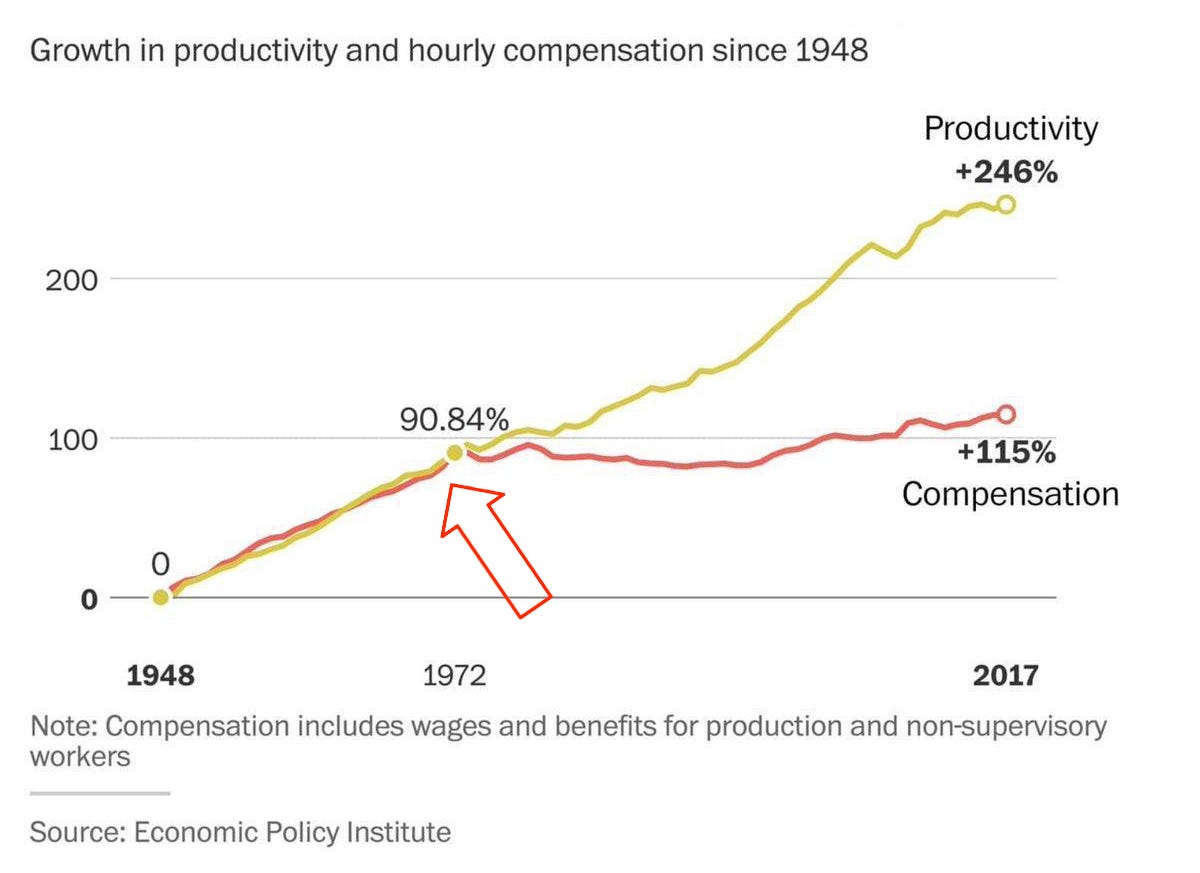TL:DR An Apocalypse eerily similar to the one that ended the Middle Ages is now underway—but hope for the future lies in the rehabilitation of magic and a journey into the imagination.
When mythological beliefs get overturned, it’s like reality is collapsing. During the thousand years when the Vatican was the sole authority in Europe, nobody ever thought to question the church. For the people of the Middle Ages, that institution defined reality. But three major factors destroyed its credibility forever:
The Black Death humiliated the church by killing off clergy at the same rate as ordinary sinners. With the discovery of germs still centuries away, disease was thought to be caused by God. But during the plague everyone could see that the church was powerless to stop the dying.
The printing press embarrassed the church when people started using it to print up Bibles in languages common people could actually understand. Before that, the church insisted on Latin only. When people started cracking the good book for themselves, they found the conspicuous splendor of the Vatican contrasted shamefully with the ministry of Jesus. “It is easier for a camel to go through the eye of a needle,” reads Matthew 19:24 “than for a rich man to enter into the kingdom of God”. The printing press exposed the church for not being upfront about the contents of the Bible.
Finally, the church endorsed the old Aristotlean model of the solar system in which the Sun revolves around the Earth. Any fool could look up and see the Sun “moving” across the sky. Until Galileo used his telescope to show that we are actually in orbit around the Sun instead of the other way around. After that reality inversion, the supposed infallibility of the Roman church became impossible to believe in.
As the credibility of the church collapsed, the reality people thought they lived in collapsed right along with it. Church authority was the only anchor that tethered them to reality. When that anchor chain was severed, the people of Europe were set terrifyingly adrift.
The collapse of Medieval reality was apocalyptic. Many of Europe’s fields lay unattended after the Black Death sent half the population to an early grave. And the surviving peasants—whose job it was to till those fields—realized they finally had the nobility over a barrel. Because their labor was in such high demand, they started bidding wars for their labor by playing one feudal lord off against another. Lords who were used to giving orders suddenly found that they were forced to listen to demands instead. The social and economic order of the Middle Ages was flipped on its head. As the old system of lords and peasants crumbled around them, few doubted that the Apocalypse was finally at hand. A profound despair settled over Europe like a poisonous fog.
Bankers filled the void left by the church’s decline. The Medici banking house of Florence amassed a fortune off economic activity stirred up by the Crusades. They invented the modern double-entry accounting method just to keep track of it all. And like everyone else in Europe, the Medici’s lost faith in the Church of Rome after it was exposed by the plague, the printing press, and the telescope. But unlike everybody else, the Medici’s actually had the financial means to do something about it. That something became clear after Greek-speaking scholars showed up in Florence. Guys like John Argyropoulos and Gemistos Plethon traveled to Italy because their home city of Constantinople was under threat by the cannons of the Turkish Sultan. In Florence, they gave lectures on classical Greek philosophy to audiences thirsty for intellectual alternatives to the church. The course of history was forever altered when their lectures blew the mind of a young Cosimo de’ Medici.
The Medici’s single-handedly touched off the Italian Renaissance. A thousand years before, when Christianity became the state religion of the old Roman Empire, the newly minted Christian authorities erased as much of the pagan past as they could. They pulled down the Telesterion at Eleusis and razed the Library of Alexandria. Many pre-Christian works from pagan authors like Plato were were lost in the holocaust. Worship of the pagan gods was outlawed. For a thousand years, the Roman church was locked in as the only route for Europeans to access the divine. That spiritual monopoly compelled believers to accept rule by the church. And the church monetized their monopoly by charging people for the forgiveness of their sins. When that monopoly broke down during the late Middle Ages, it was time for the Medici’s to step onto the stage of history. They responded to the Apocalypse of their day by reviving pre-Christian philosophy and art as an antidote to the mess Christian authorities had made of things. That meant using their considerable fortune to hunt down old pagan manuscripts wherever they still existed. Cosimo even founded a new Platonic Academy near Florence—in imitation of the one Plato himself once ran in Athens. Furthermore, lavish Medici patronage freed the Florentine art community to devote all its time to studying classical Greco-Roman painting, sculpture, and architecture. Their technical skill eventually caught up to and surpassed the painters, sculptors, and architects of antiquity—and their awe-inspiring work still adorns the city of Florence to this day.
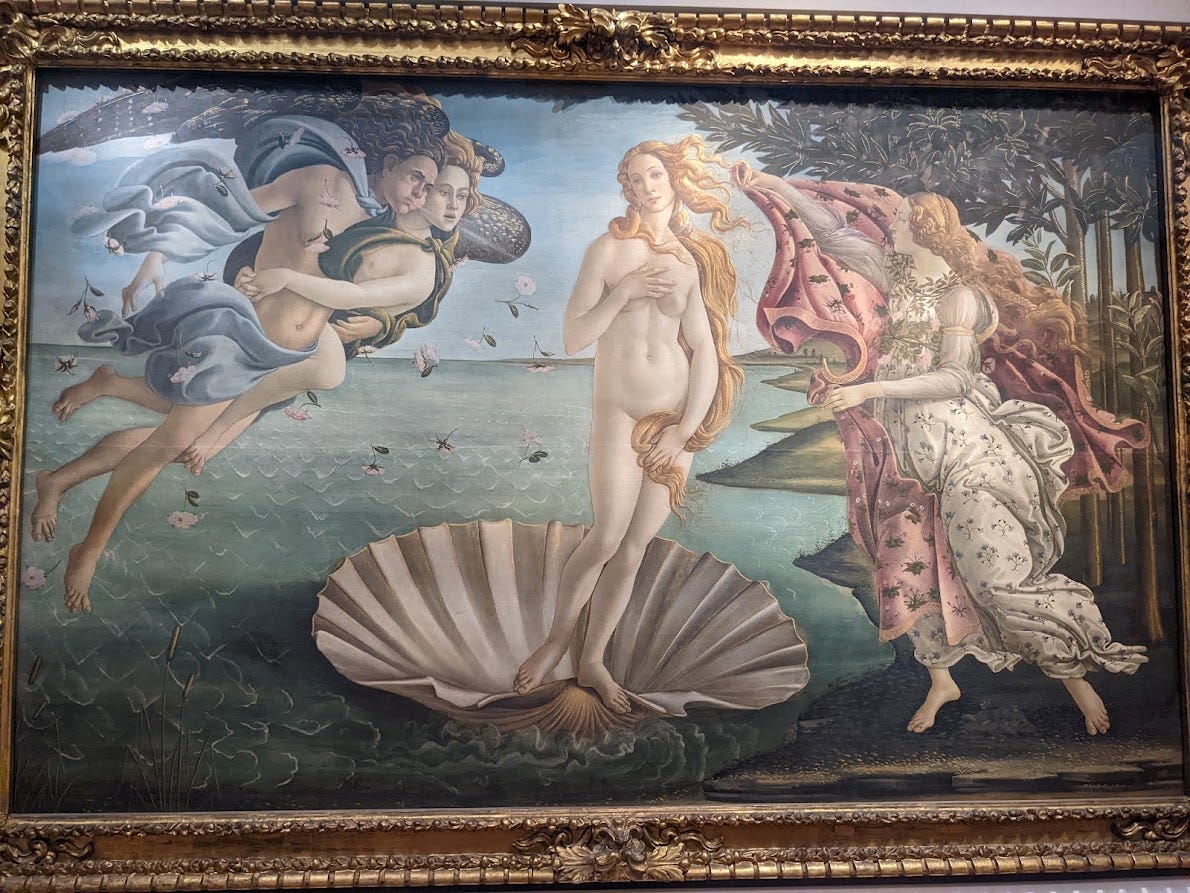
As church power declined, it could no longer suppress the old traditions of magic. During the late Middle Ages, church power waned thanks to the plague, the printing press, and the telescope. Meanwhile, the Medici’s amassed enough power and influence to insulate themselves from the church’s wrath as they reacquainted European society with pagan art and philosophy. The historical impact of this reintroduction of the Classics cannot be overstated; Alfred North Whitehead once quipped that the European philosophical tradition “consists of a series of footnotes to Plato”. But if you asked the Medici’s themselves, they would have told you that the study of magic was by far their most important legacy. The Medici’s were obsessed with it. When Cosimo was an old man, his agents stumbled across a mysterious book of ancient magic called the Corpus Hermeticum. He was so intensely interested in that book that he ordered his Greek translator to abandon the monumental translation of Plato and focus on it instead. The old man wanted a crack at real magic before he died—the kind of magic the church used to burn people alive for.
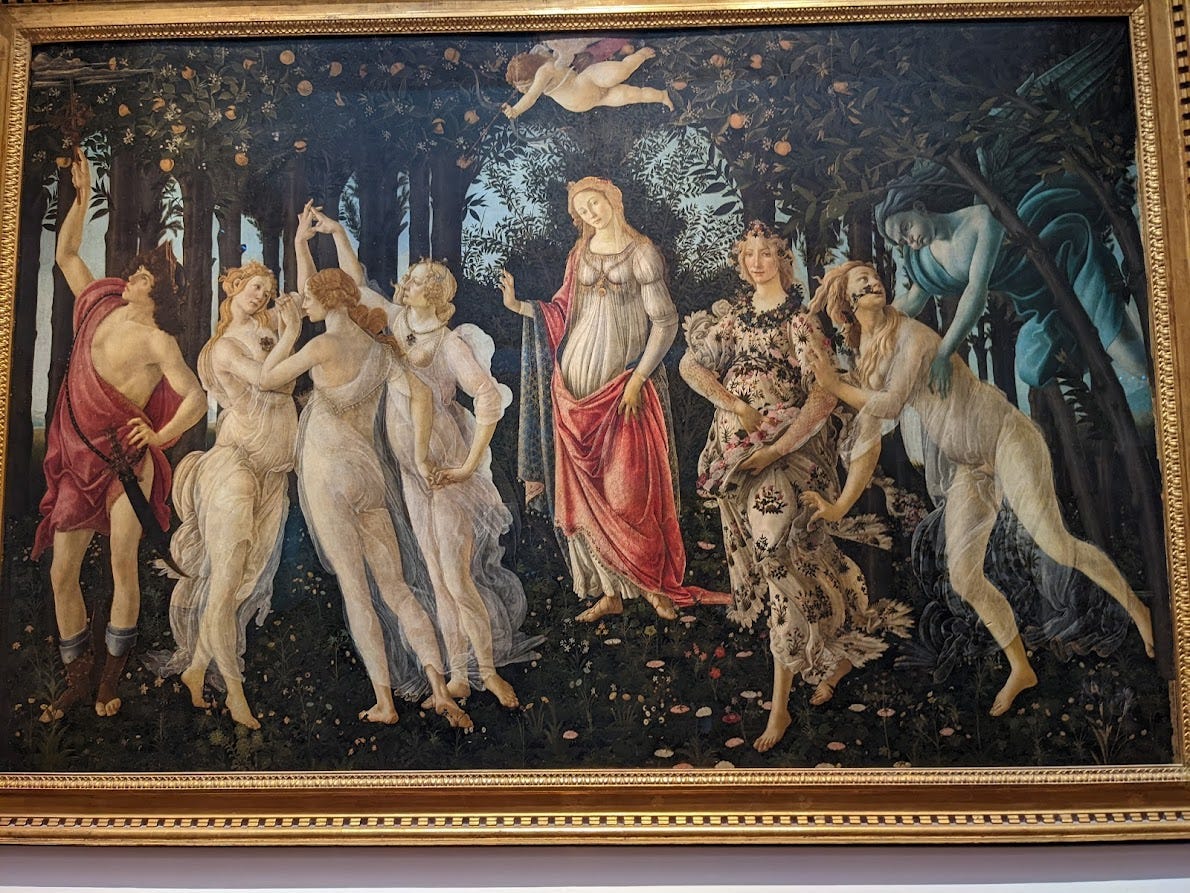
The basic split in Medieval society was between the authoritarian worldview of the church and the magical worldview it violently suppressed. The fundamental idea behind the magical tradition is that we are simultaneously experiencing AND creating the observable universe around us. Just as we create our dreams and experience them at the same time. Magic is the notion that reality is mutable because, as in a dream, we are generating it with our minds. But thinking that humankind, like God, is party to the act of creation was a heresy to the church. It threatened their lucrative spiritual monopoly by putting people and God on the same level. So they burned people alive for daring to whisper it. Instead, the Christian worldview insists that we are lowly, flawed individuals wandering around inside the grand creation of a perfect god, observing it with our senses. To bolster its political power, the church wanted people thinking of themselves as servants of God and, by extension, of his church. These Medieval conceptions of God and humanity mirrored the Medieval economic roles of lord and peasant. Only after church power waned could the Corpus Hermeticum be safely studied. That text literally refers to humankind as siblings of God. Not servants. “If then you do not make yourself equal to God,” it reads “you cannot apprehend God; for like is known by like.”
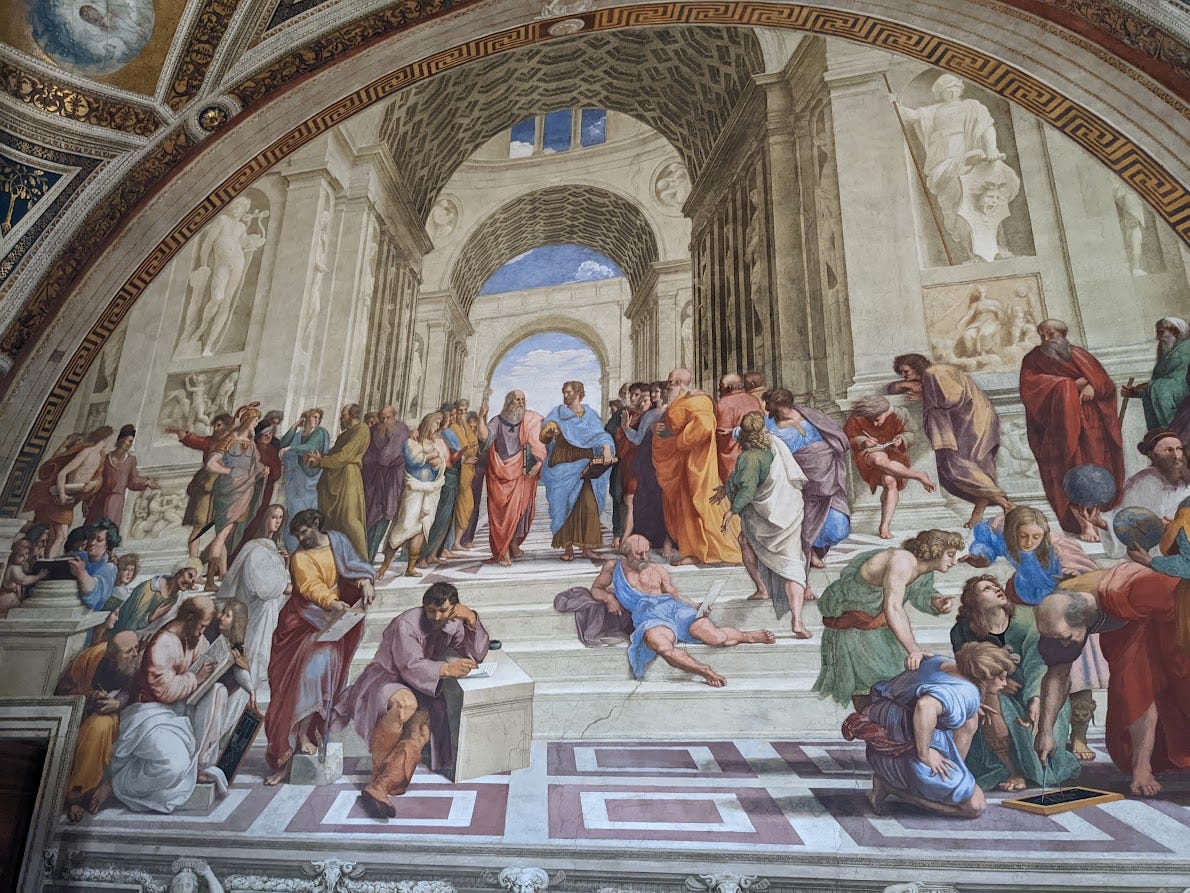
Magic morphed into science and fueled the rise of capitalism. In the centuries since the Medici’s ruled Florence, the wizard with his bubbling retorts and alembics became the scientist with her beakers and test tubes. Astrology turned into astronomy. Alchemy became chemistry. This refinement of the magical arts into the sciences produced a dazzling parade of new technology. As all that technology was brought to market by entrepreneurs, 600 years of rapid economic expansion ensued. And the bankers got a taste of all that action because they had the money at the start of the Monopoly game. When entrepreneurs need startup capital for a new venture, the banks provide it—and collect their toll by charging interest on the loan. Much like the church used to demand its toll for being the only avenue to God. Bankers sit at the top of our pyramid-shaped society today. In fact, we’re still ruled by a nexus of scientists and bankers that evolved from the magical bankers who inaugurated our modern era of employers and employees. These authorities play the same role the church did during the previous era of lords and peasants. Scientists define reality for us; those who disagree with scientists are laughed off as crazy people. And bankers tell us the right way to live. They preach the orthodoxy that banks loaning money to entrepreneurs is the only proper way to organize society, and they control that flow of investment by prescribing particular interest, inflation, and unemployment rates. And we accept their authority without question. Foreign societies, like Vietnam, who try out alternative ideas, like Marxism, tend to find themselves on the receiving end of American bombing campaigns.
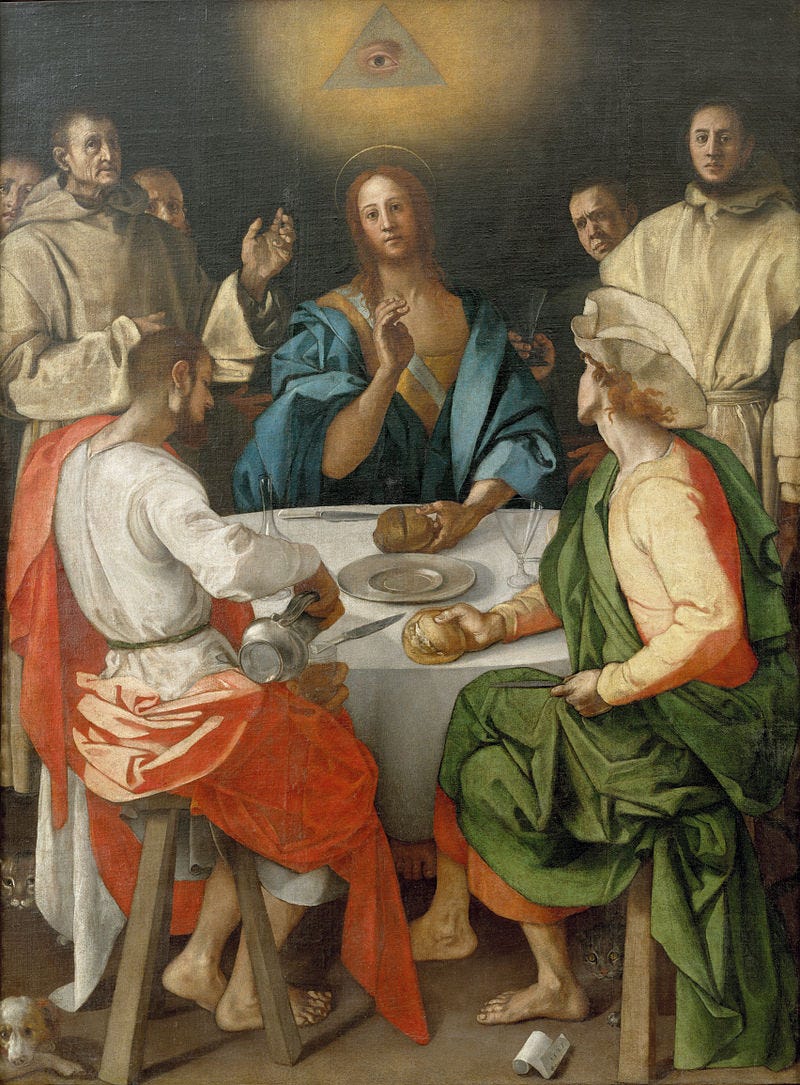
But now science is running out of fuel. We think of the transition from magic to science as a triumph of rationality. But the Christian view that God’s universe exists independently of our observation was never questioned by institutions of science. Science uncritically inherited the Christian idea that we are wandering around inside a grand creation, observing it with our senses but never creating it. Science hinges on the fiction of the objective observer. And now, across the developed world, economic growth has slowed to a trickle after 600 years of explosiveness. The same technology that once opened up new frontiers of rapid economic growth is now systematically replacing human labor. As human workers become less and less relevant to the production process, they have less and less bargaining power with which to negotiate their wages. The result has been 50 years of stagnant wages for employees, and windfall profits for employers. Those profits have driven up the stock market and exploded wealth inequality so that it now mirrors Rome in the twilight before its fall. The irony is that when employers collectively pay their workers less, workers collectively have less to spend on the goods and services employers sell. In recent years, Andrew Yang achieved some measure of success on the presidential campaign trail repeating the old Marxist prophecy that capitalism is being devoured by its own child: technology. Another Apocalypse is in the offing.
We are on the cusp of another apocalyptic paradigm shift today. Ancient Rome was mainly a society of slaves and masters. After Rome collapsed, the people of Europe transitioned to working as peasants and lords. After Medieval society collapsed, people began working as employees and employers. Each of these transitions from one economic model to the next was marked by an apocalypse, like the infamous Fall of Rome. And the similarities between the apocalypse of the late Middle Ages and our current time are downright spooky:
COVID-19 had nowhere near the mortality rates of the Black Death. The similarity between the two plagues lies in the damage they did to the reputations of authoritative institutions. No matter which side of the COVID debate you came down on, there is no question that our institutions of science took serious hits to their reputations. It was chilling to walk the streets of Florence during COVID and see the good people of that city wearing plague masks once again, just as they did during the Black Death.
Like the printing press once did, the internet is exposing the malfeasance of powers-that-be. The Black Lives Matter movement was just one example of public backlash to that exposure. Our revolution in communication technology mirrors the one that took place during the Renaissance. The internet is deranging our society in unpredictable ways, just like the printing press in the days of the Medici’s.
The Double-Slit Experiment and Placebo Effect are established science, even though they demonstrate that the universe we observe is being manufactured within our own minds. The sciences never questioned the Christian assumption that there is such a thing as an objective reality. Now they exist, as Terence McKenna used to say, in a state of “unrecognized tension”. We are waiting for the next telescope of Galileo to come along and finally break that tension.
As the credibility of the church collapsed at the end of the Middle Ages, people despaired. They had no idea that the Renaissance lay just over the horizon; they could only assume the Apocalypse was at hand. Today, a similar gloom hangs over modern society. Deaths of despair, like suicide and overdose, are mounting to disturbing new heights. But the lesson we should take away from the Fall of Rome and from the Renaissance is that when old systems break down, new and better systems arise to take their place. Faith, after all, is the only alternative to despair.
Hope lies in the rehabilitation of the old magical worldview. People are very closed-minded about magic because they have faith in our authorities. But eventually, the authorities of every age overstay their welcome. It’s impossible to imagine what might come after our 600-year-old system of employers and employees. But we should tear a page out of the Medici’s playbook. They weren’t afraid to go back in time and revive old traditions when their system broke down. The undeniable implications of the Placebo Effect and the Double-Slit Experiment is that the ancient schools of magical thought aren’t as crazy as our authorities claim. Another Medici-like revival is in order.
A new Age of Exploration is in the offing. When the Sultan finally captured the city of Constantinople, he renamed it Istanbul and closed the port to Christian ships. The famed Silk Road of Marco Polo was severed. So the crowned heads of Christendom started dispatching ships westward across the Atlantic in search of an alternative sea route to the Orient. The resulting Age of Exploration epitomized the transition from the Medieval paradigm to the modern one. The utopias depicted in science fiction always come about from a human expansion into the stars that mirrors this historical expansion onto new continents. If the human mind is really the source of creation, as the magical tradition, the Placebo Effect, and the Double-Slit Experiment suggest, then science fiction is looking in the wrong place. Instead of the cosmos, a second Age of Exploration should explore the furthest frontiers of the human imagination. Psychedelic drugs were the source of Greco-Roman religion, and could serve as sails on our ships of the imagination. We should send our bravest explorers to chart the unexplored mental realm of Plato. As it says in old Cosimo’s Corpus Hermeticum: “Leap clear of all that is corporeal and make yourself grown to a like expanse with that greatness which is beyond all measure; rise above all time and become eternal; then you will apprehend God.”





